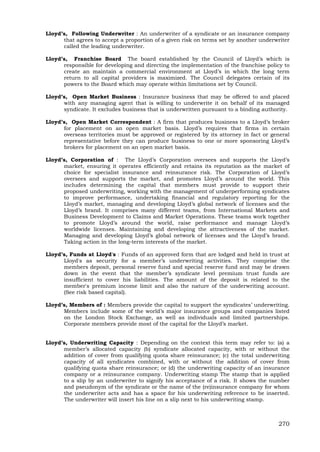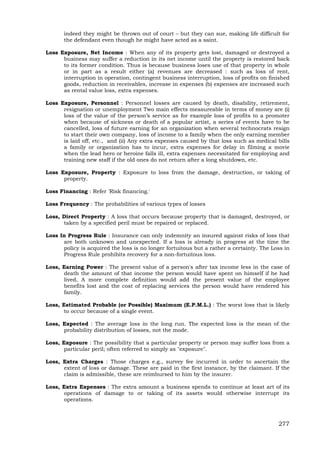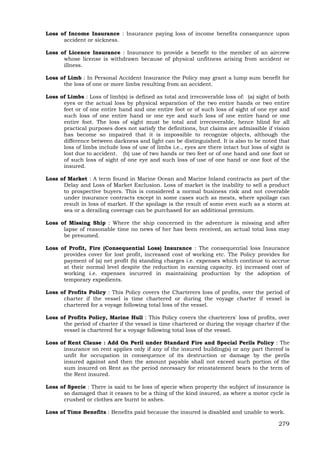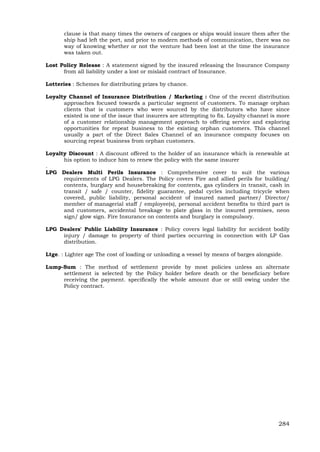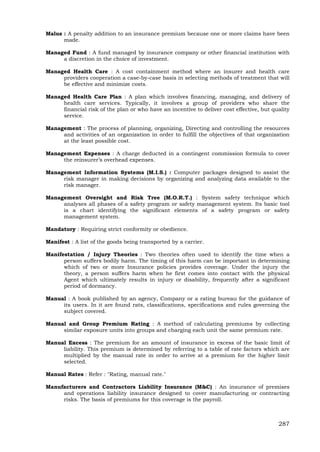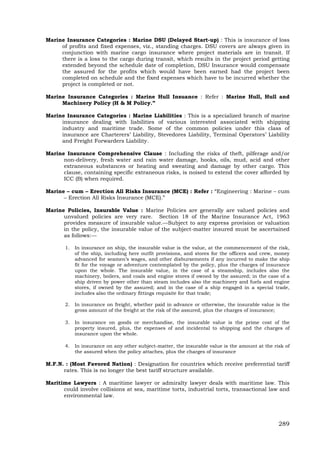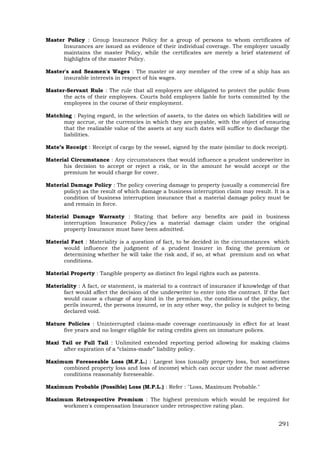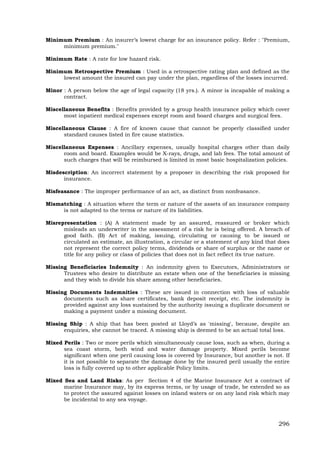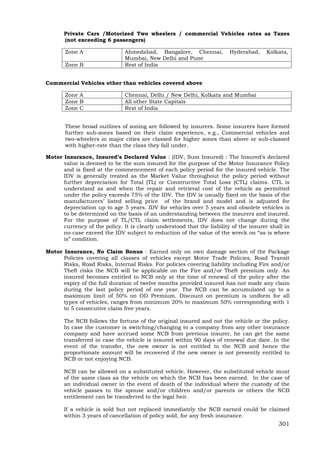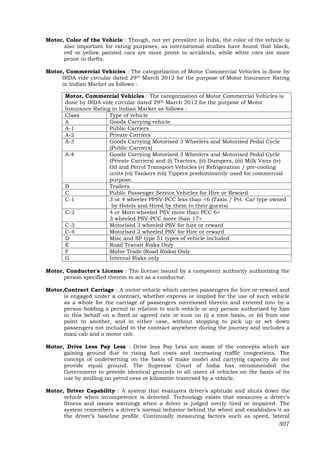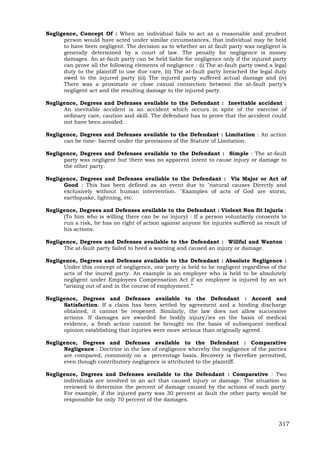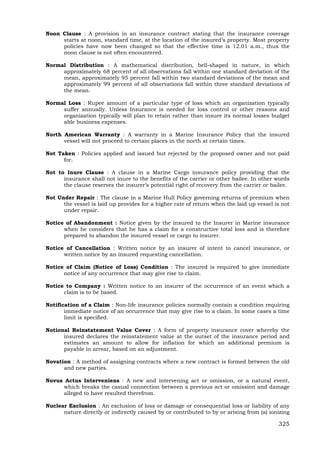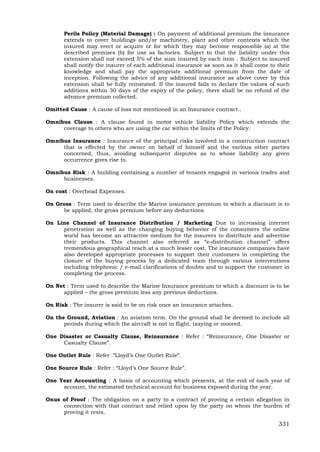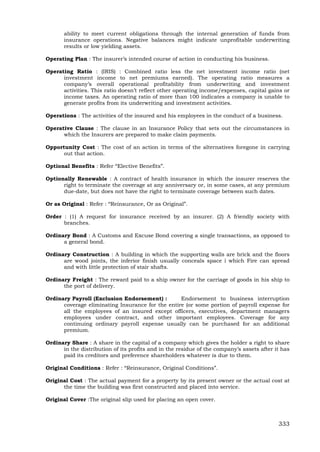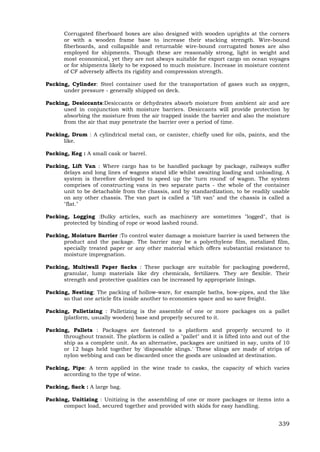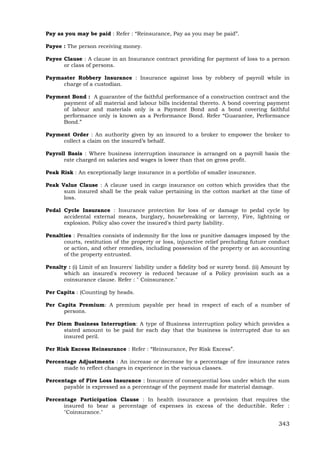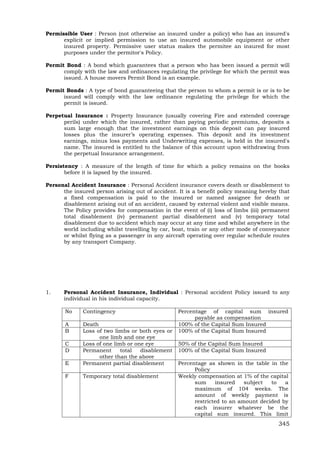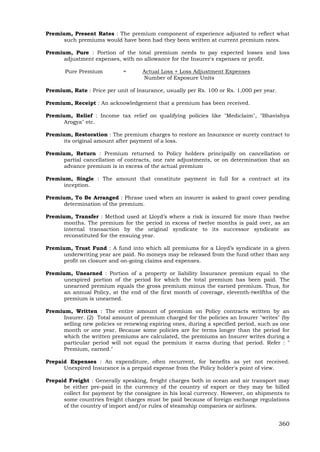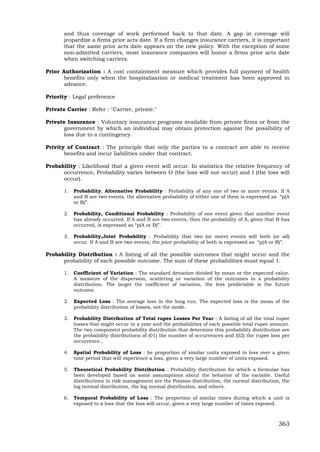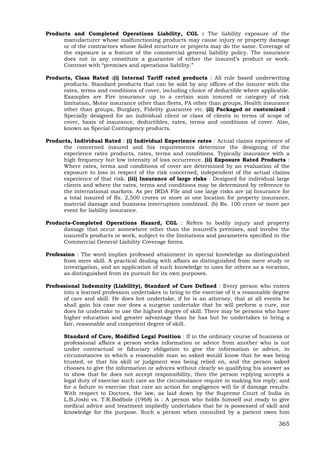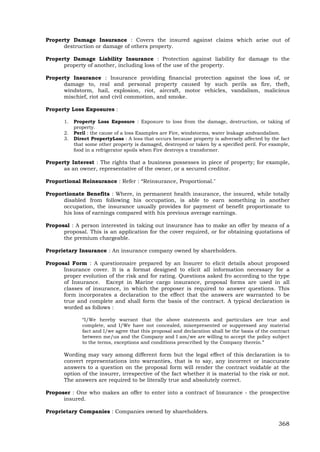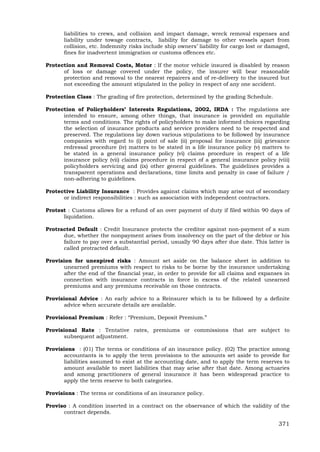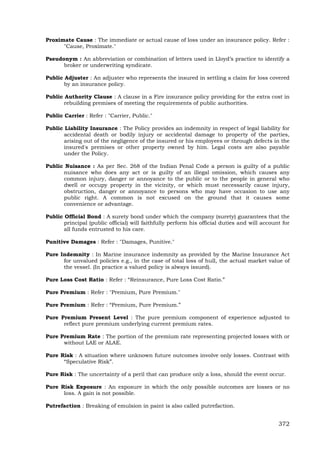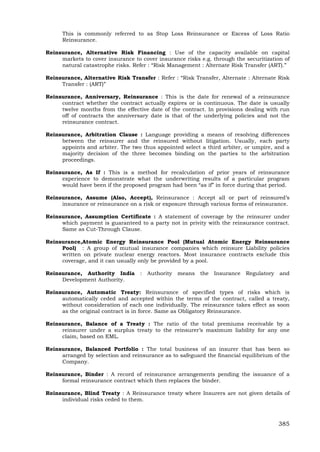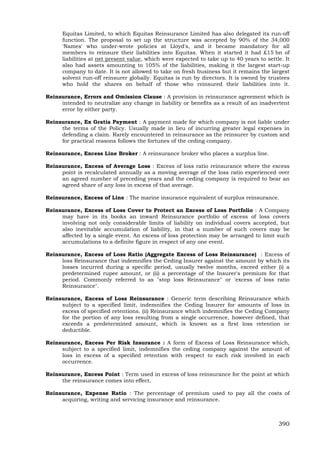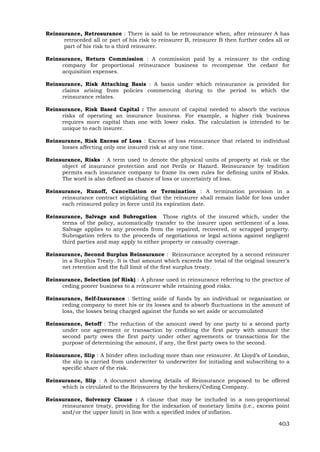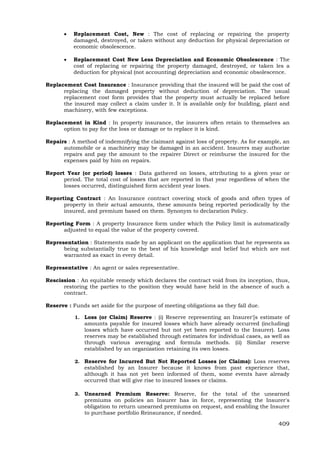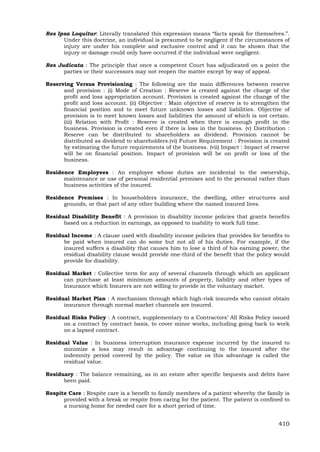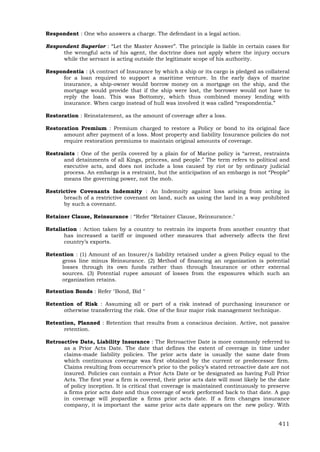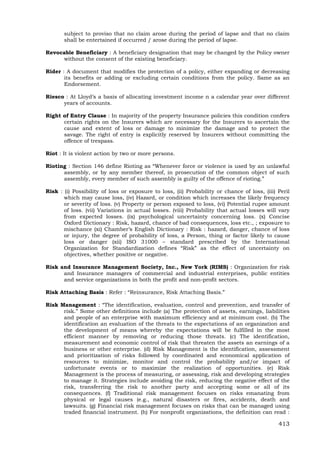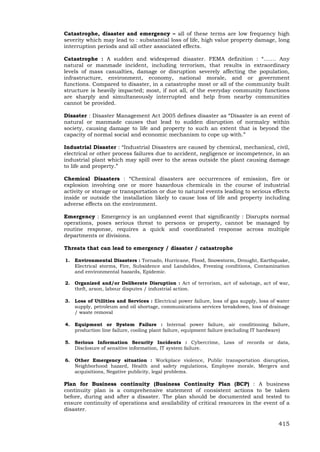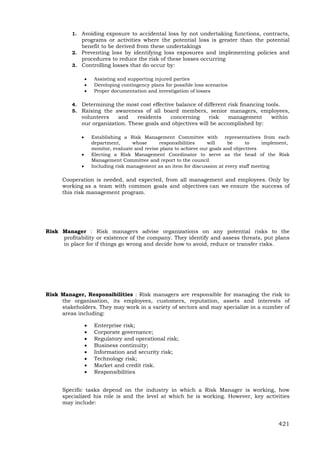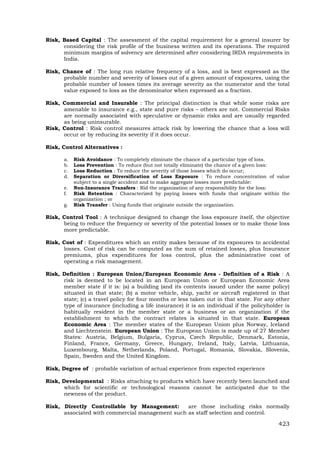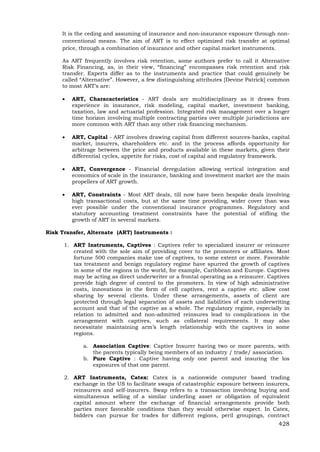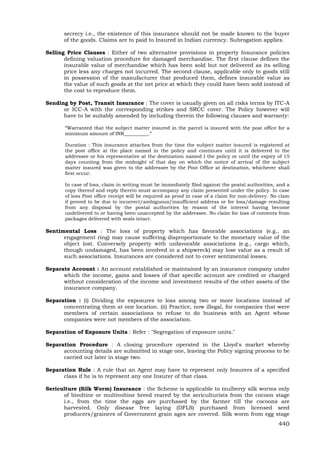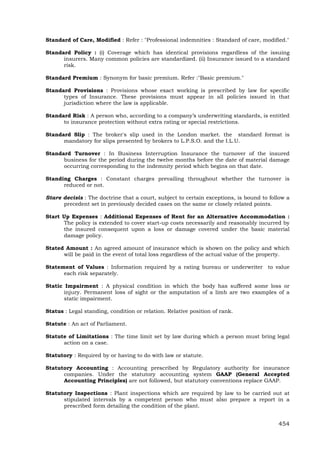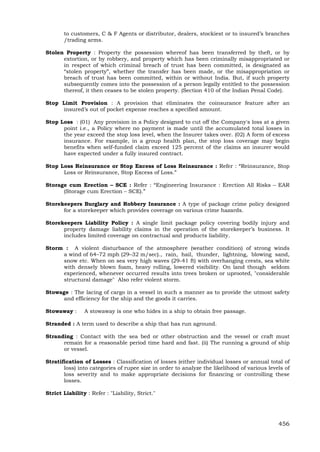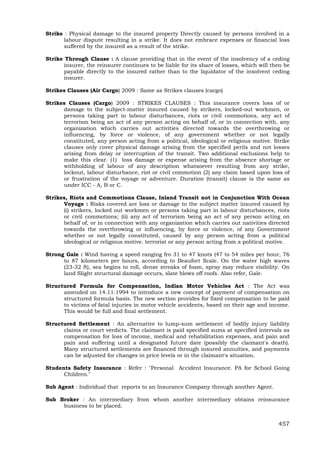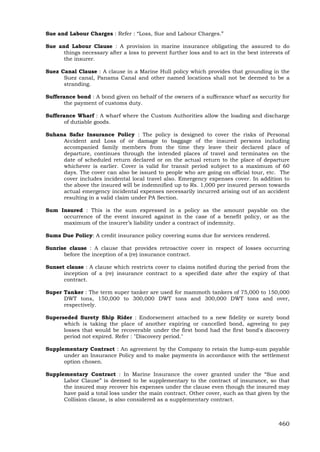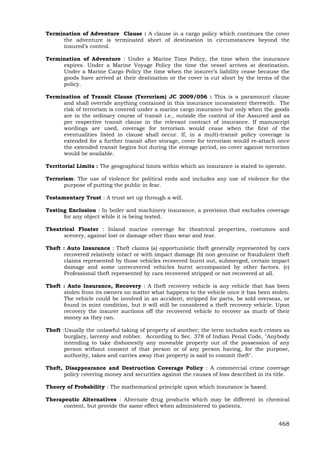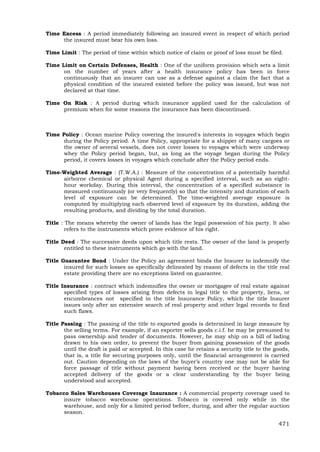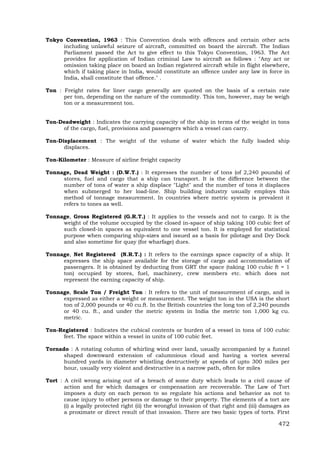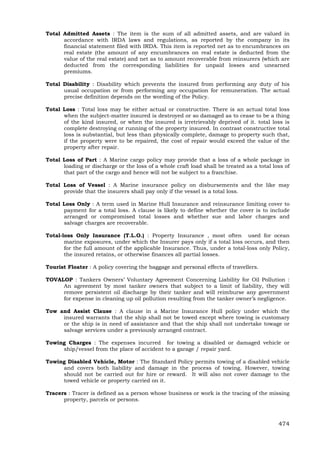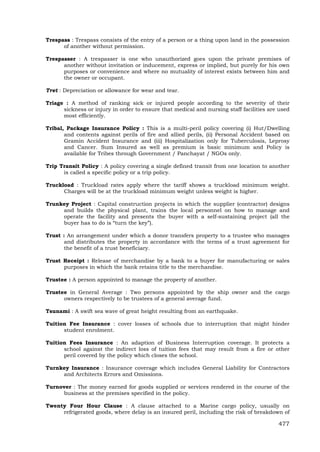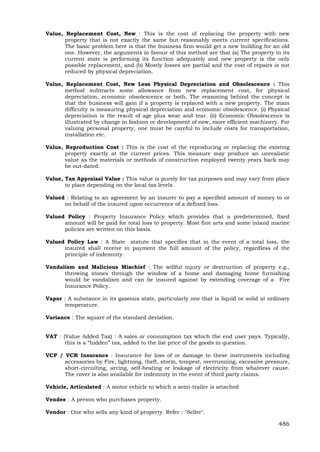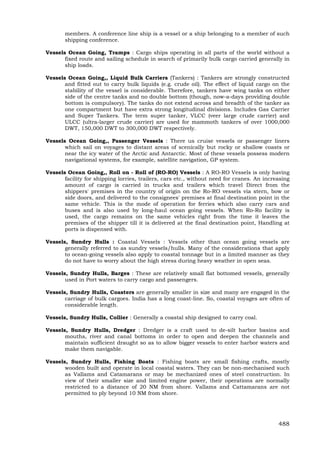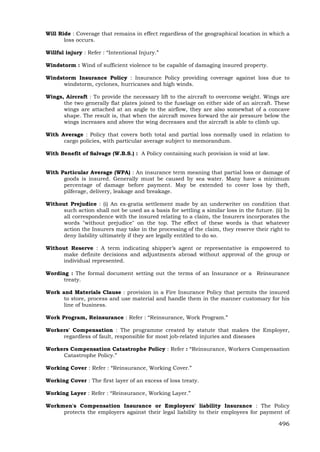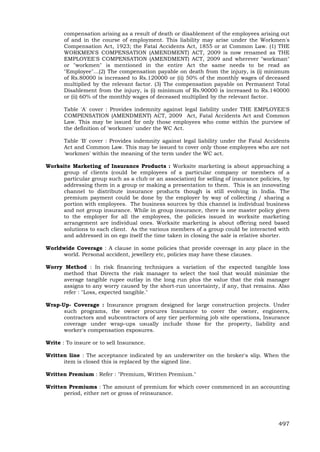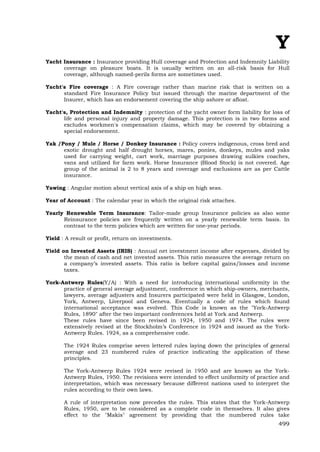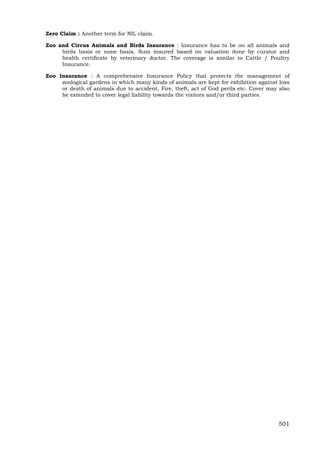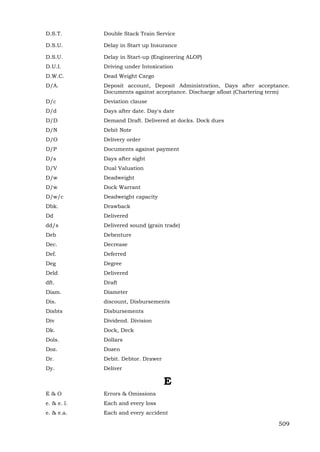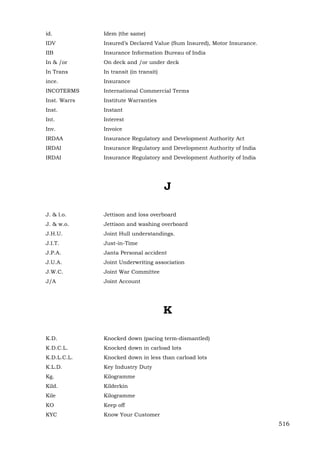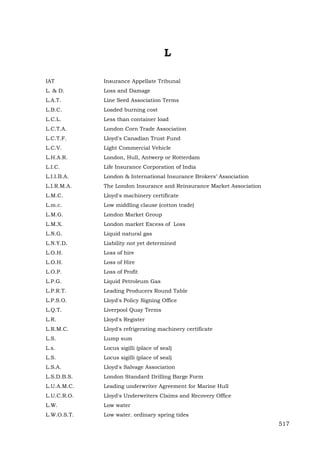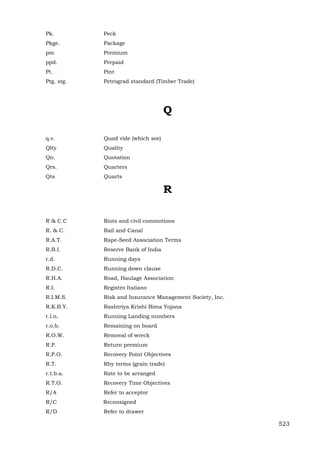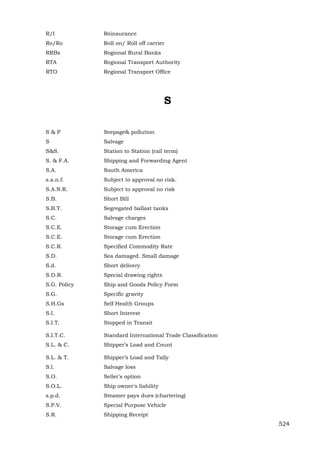This document provides a glossary of over 7,500 insurance, reinsurance, and risk management terms. It was compiled by the author over 18 months through extensive research of source materials. The glossary is in alphabetical order and includes cross-references. While not encyclopedic, it aims to be accurate and understandable for non-specialists. The author acknowledges the contributions of learned authors, institutions, and source materials in compiling this resource. Feedback is welcomed to improve future editions.
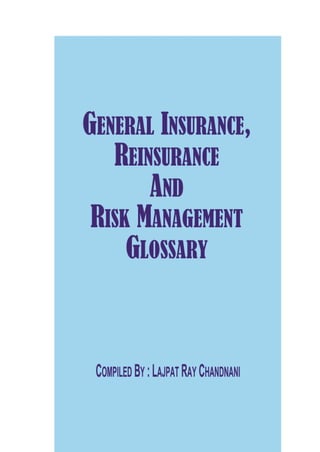
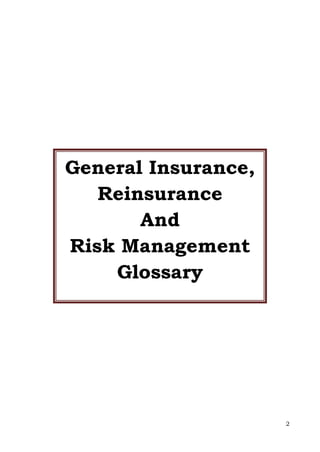







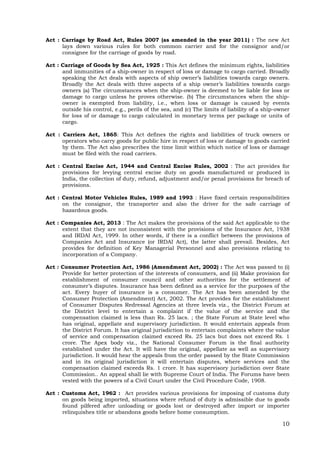




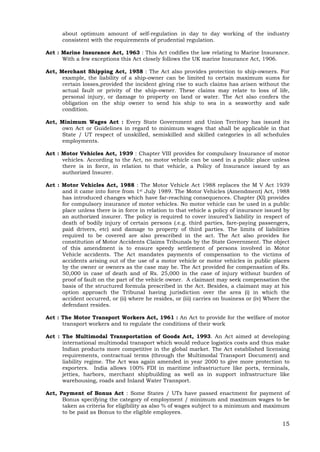













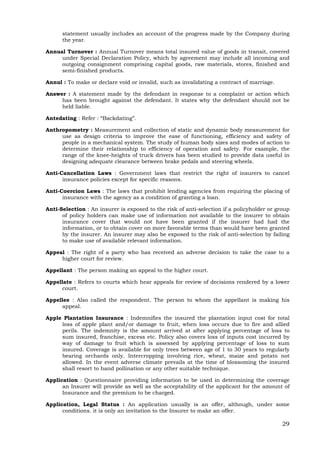




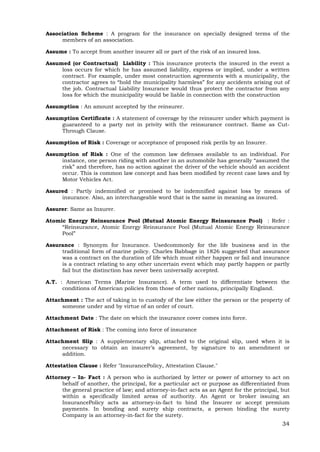






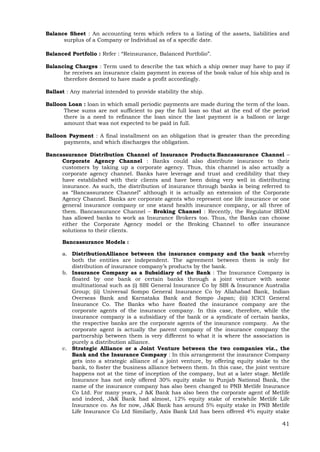


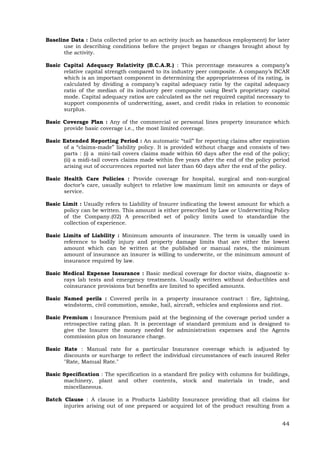







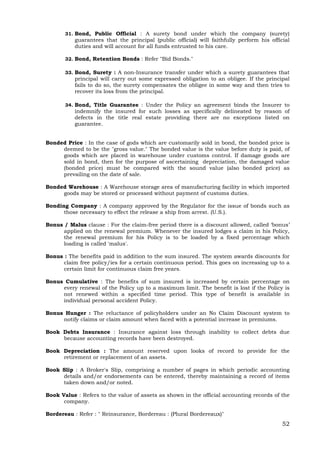






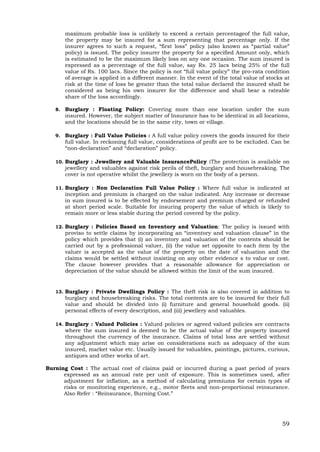









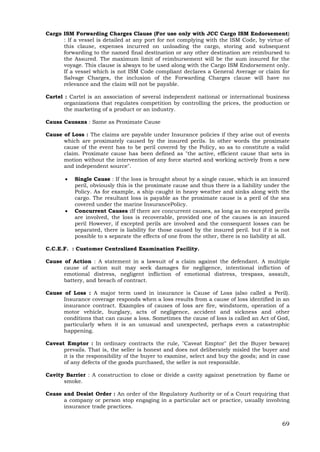















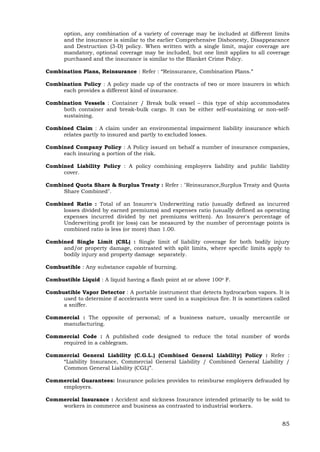



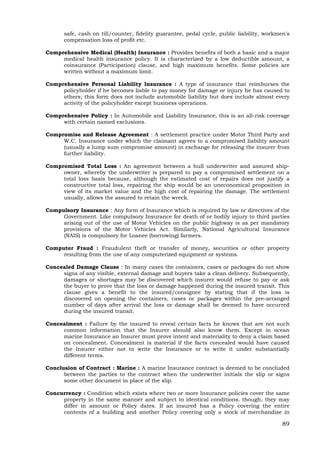







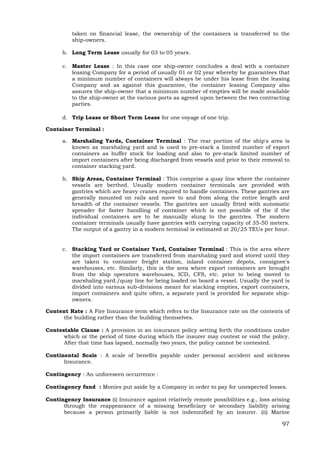




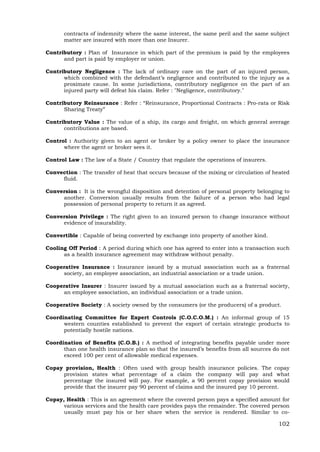


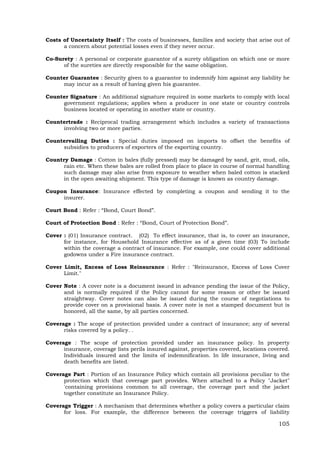





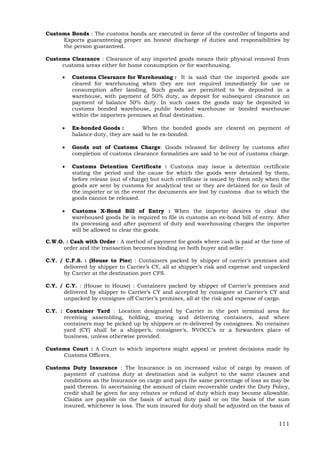







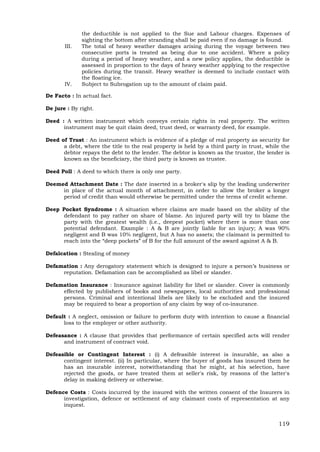
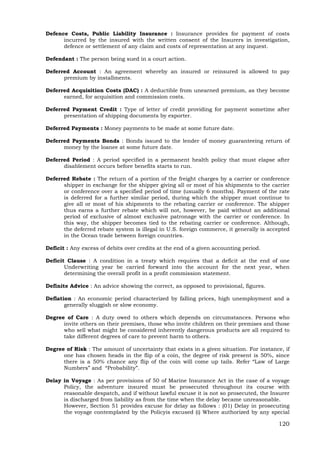





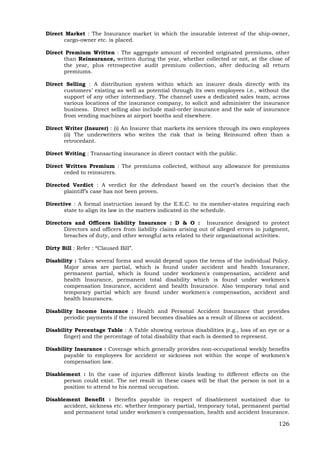










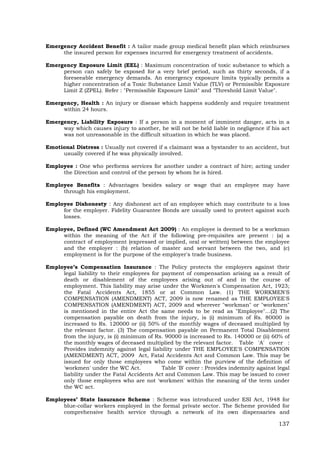



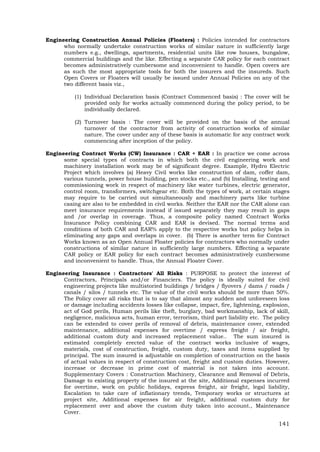
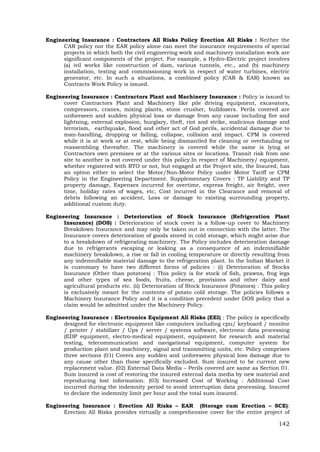


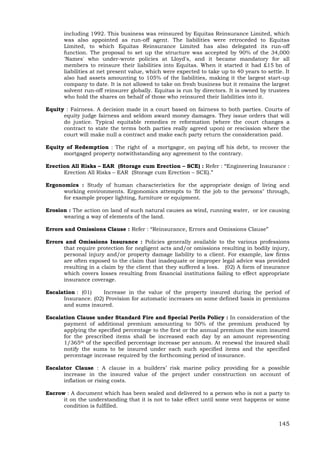






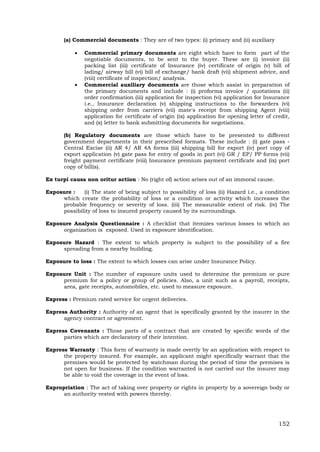

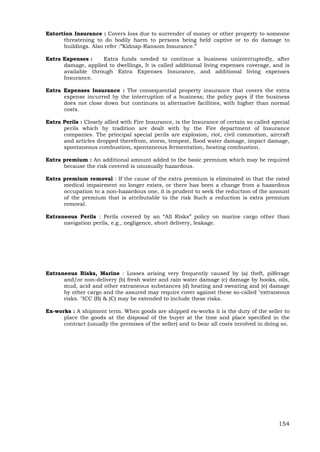



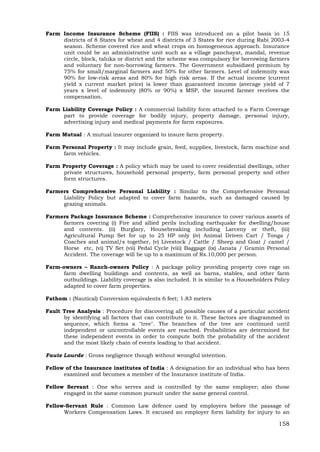





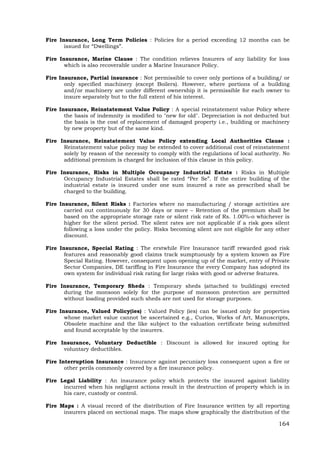
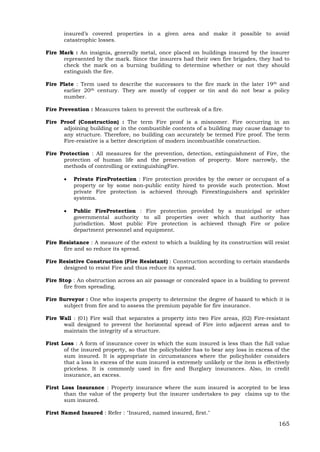
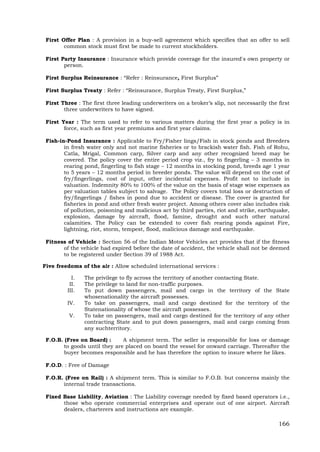









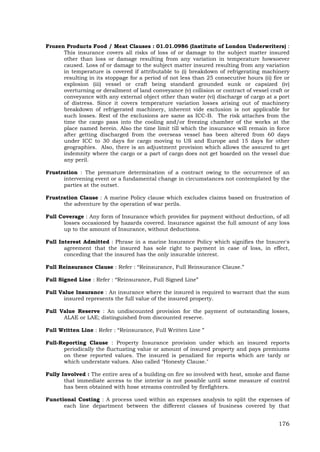











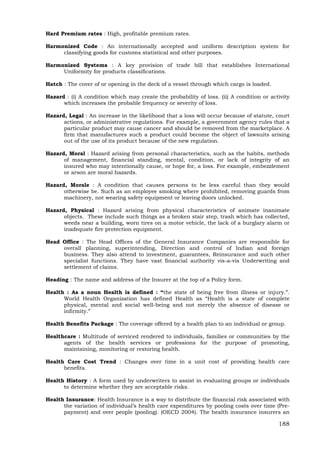

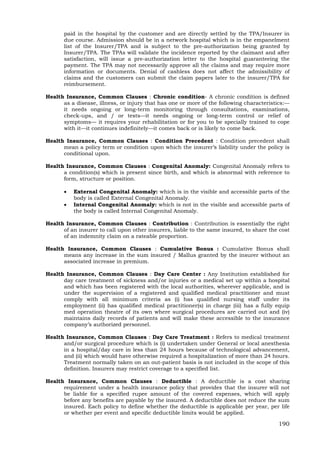


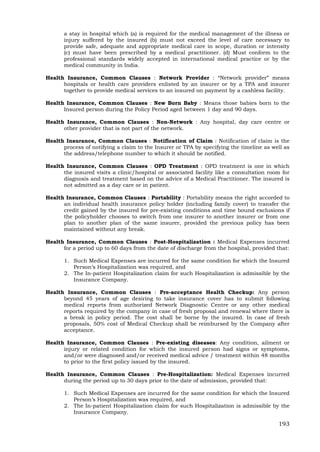








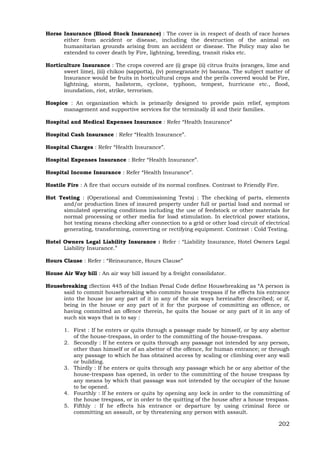

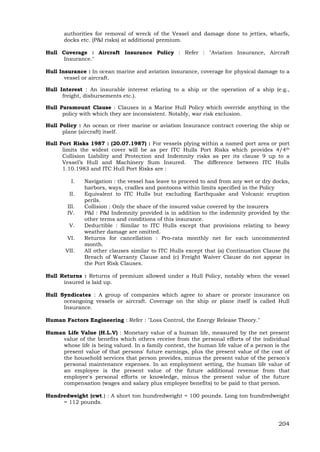







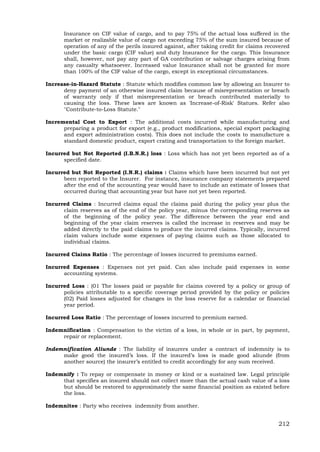


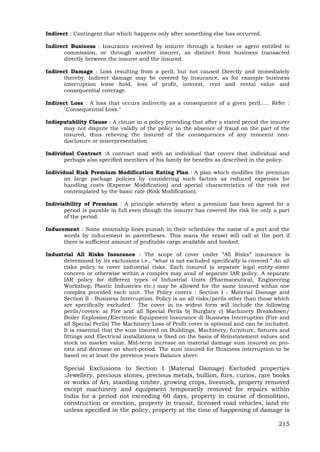
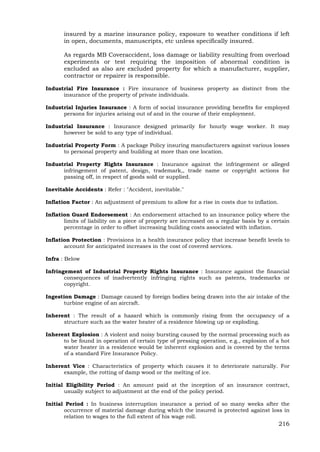

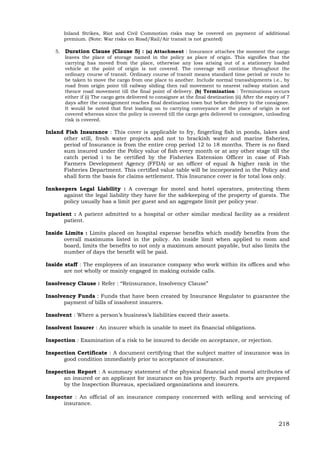

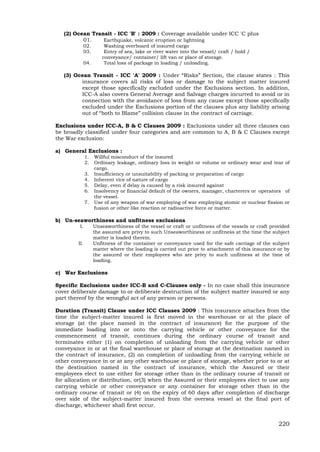





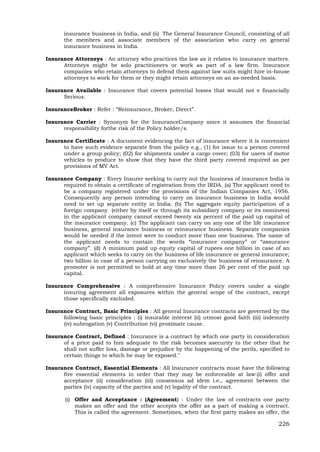



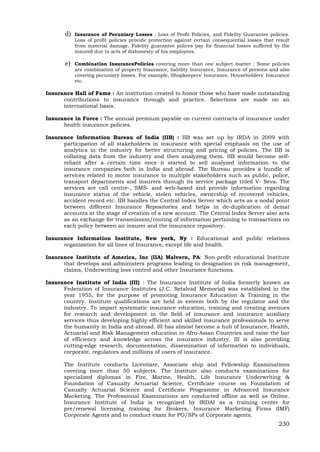



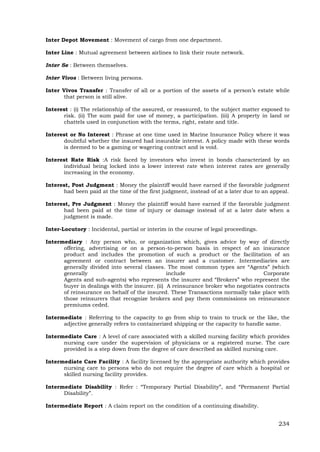







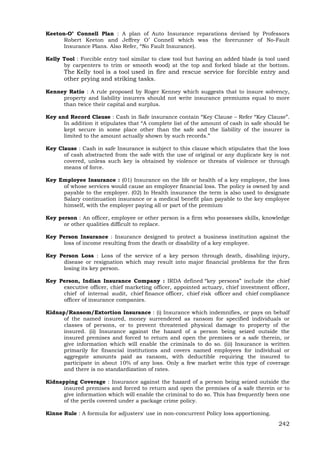

















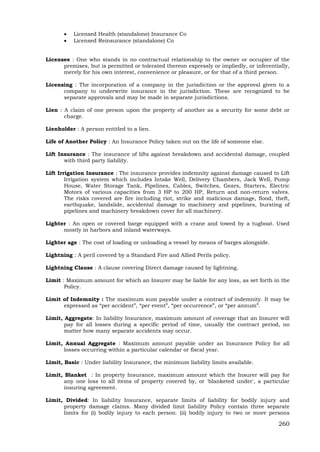


![263
provisional liquidation of a company, in which case it may be resuscitated. Otherwise
the court will issue an order for voluntary or compulsory liquidation. (ii) The
finalization of a customs entry.
Liquidation Bond : A bond in respect of the conduct of the liquidator of a company that is
being wound up.
Liquidation of Insurer : Action undertaken the Competent Regulatory Authority to dissolve
an impaired or insolvent insurer which cannot be restored to sound financial
standing.
Liquidity : Liquidity is the ability of an individual or business to quickly convert assets into
cash without incurring a considerable loss. There are two kinds of liquidity : quick
and current. Quick liquidity refers to funds – cash, short term investments, and
government bonds – and possessions which can immediately be converted into cash
in the case of an emergency. Current liquidity refers to current liquidity plus
possessions such as real state which cannot be immediately liquidated but eventually
can be sold and converted into cash. Quick liquidity is a subset of current liquidity.
This reflects the financial stability of a company and thus their rating.
Liquor Liability Insurance : Refer : “Dram Shop Liability Insurance.”
Liquor License Bond : Insurance required by a regulatory body for those having liquor
licenses.
Listing : A list of Insurers or reinsures subscribing a contract, showing their relevant
participations. The term is applied in Direct cargo practice also to an advice given to
open cover Insurer in respect of an extraordinarily large declaration on the cover.
Litigant : One who is engaged in a lawsuit.
Litigation : The act of carrying on a law suit.
Litigation Bond : Refer : “Court Bond”.
Litigation Costs and Expenses : A liability insurance provides indemnity in respect of
litigation costs and expenses incurred in connection with a third party claim against
the insured.
Livery : In automobile insurance, the carrying of passengers for hire.
Livestock : Common farm animals
Livestock Insurance : The class of agricultural insurance that is based on the provision of
mortality cover for livestock due to named disease(s), and accidental injury.
Insurance cover is normally restricted to adult animals and may be taken out on an
individual animal or herd basis. Major Classes of insured livestock include dairy
cattle, sheep, goats, pigs, camels, etc. Refer also "Cattle Insurance."
Livestock Mortality Insurance : The equivalent of life insurance for livestock.
Livestock Transit Insurance :Insurance against accidents causing death or crippling on
shipment of livestock while in transit by rail, trust, or other similar means of
transportation.
Lloyd’s Byelaws : The primary rules made by the Council of Lloyd’s regarding the conduct
of insurance business at Lloyd’s.
Lloyd’s Society of Lloyd’s [*] The Society incorporated by Lloyd’s Act 1871 by the name of
Lloyd’s.](https://image.slidesharecdn.com/2b20832d-f590-4e0d-8f1d-c775ca8792ec-161112085217/85/E-book-263-320.jpg)


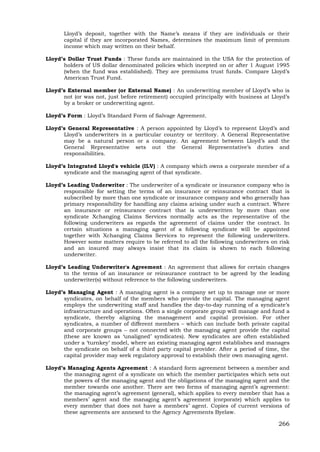


![269
Lloyd’s Syndicate [*] : A member or group of members underwriting insurance business at
Lloyd’s through the agency of a managing agent or a substitute agent to which a
syndicate number is assigned by the Council. Except where it is expressly otherwise
provided the several groups of members to which in different years a particular
syndicate number is assigned by or under the authority of the Council shall be
treated as the same syndicate, notwithstanding that they may not comprise the same
members with the same individual participations. [*] = Syndicate allocated capacity =
In relation to a syndicate, the aggregate of the member’s syndicate premium limits of
all the members for the time being of the syndicate.
Lloyd’s Syndicate Business Forecast : A statement of the expected range of results of each
open year of account of a syndicate that is submitted to Lloyd’s by its managing
agent in mid-year together with the managing agent’s expectations for the next year
of account.
Lloyd’s Syndicate Business Plan : A plan of the underwriting of a given syndicate for a
given year of account that is prepared by the managing agent of a syndicate and
submitted to Lloyd’s for approval in advance of the commencement of underwriting
for that year of account.
Lloyd’s Syndicate Number : The unique identifying number assigned to a syndicate by the
Council of Lloyd’s.
Lloyd’s Syndicate Pseudonym : A series of letters used to identify a syndicate which
together with its number are contained in the underwriting stamp of the syndicate.
Lloyd’s Syndicate Reinsurance : The reinsurance of a syndicate by one or more reinsurers.
Such reinsurance can only be arranged by a Lloyd’s broker.
Lloyd’s Syndicate Stamp : This term may refer to – (a) a document which lists the names of
the members of a syndicate for a given year of account and the amount of each
member’s overall premium limit that is allocated to that syndicate; (b) the syndicate
allocated capacity of a syndicate; or (c) the underwriting stamp of a syndicate.
Lloyd’s Syndicate, Mixed : A syndicate which is made up of Names and/or MAPAs and
corporate members.
Lloyd’s Tenderer : A member that seeks to sell some or all of his underwriting capacity in a
capacity auction.
Lloyd’s Underwriting Agent : A person who acts as an agent for an underwriting member
of Lloyd’s (a) as a member’s agent who acts in all respects for the member, other than
in managing the underwriting syndicate, and/or (b) as a managing agent, who
manages the affairs of the syndicate.
Lloyd’s Working member: A member who occupies himself principally with the conduct of
business at Lloyd’s by a Lloyd’s broker or underwriting agent, or a member who has
retired but who immediately before his retirement occupied himself in this way.
Lloyd’s Written Line : The amount of a risk that an underwriter is willing to accept on
behalf of the members of the syndicate or company for which he underwrites. This is
commonly expressed as a percentage of the sum insured which is written on the
broker’s placing slip. If, on completion of the broking exercise, the written lines
exceed 100% then, absent some contrary instruction, they will be signed down by the
broker, which is to say they will be reduced proportionately so that they total 100%.
Lloyd’s Xchanging : An outsource provider of policy, premium and claims processing
services to the Lloyd’s market and others. These services are delivered via its
operating subsidiaries, Ins-Sure Services and Xchanging claims services.](https://image.slidesharecdn.com/2b20832d-f590-4e0d-8f1d-c775ca8792ec-161112085217/85/E-book-269-320.jpg)
